
As the Scottish rock band embarks on a reunion tour, the chef-turned-frontman talks about being compelled to keep writing songs
Formed by Justin Currie in 1983, Del Amitri were an alternative rock band that emerged from Glasgow on the crest of new-wave and post-punk, but soon carved a more mature sound characterised by jangly guitars and thoughtful lyrics that owed more to contemporaries The Smiths, and fellow Scots, Simple Minds. In fact, it was a tour supporting the former, along with support from the UK music press and influential Radio 1 DJ John Peel, that gave Del Amitri their breakthrough during the mid-80s. Their second album Waking Hours, released in 1989, topped-out at No.6 in the UK Albums Chart and provided them with their biggest ever single chart hit at home with the song Nothing Ever Happens. The band also gained some mainstream exposure abroad for the first time.
For the next ten years, Del Amitri enjoyed their most commercially successful period with the release of two classic albums, Change Everything, and then Twisted in 1995 which peaked at No.3 in the UK. Stand-out single Roll To Me was only a moderate hit in the UK where it topped-out at No.22, but it managed to find greater success across the Atlantic, reaching the Top 10 in the US charts. The Glaswegian rock band continued with several line-ups and two more albums until 2002, when Del Amitri unofficially disbanded… but now they’re back!
Justin Currie, together with guitarist Iain Harvie, was the main songwriter of the group, and the two have been the only members of the band to remain present throughout its history. Whilst Currie has taken the opportunity to step away from the band and enjoyed a successful solo career in recent years, it’s clear he has been the determined creative force at the core of Del Amitri, across four decades, and so we endeavour to uncover what feeds this work ethic and insatiable songwriting thirst. But first, where did it all start?…
How did you get into music, growing up in Glasgow, before Del Amitri?
“By listening to The Beatles and pop music from quite a young age. My dad was a classical musician, but that was all a bit too intellectual for me. I really got into MOR stuff when I was eight or nine years old. My parents had a stereo in the 1970s and for some reason they bought Gilbert O’Sullivan’s first two albums, which I absolutely adored, and still do. Then I had a really dodgy period when I was about 13 when I listened to prog rock. My cousin was really into it and used to lend me all his albums, like Emerson, Lake & Palmer. Thankfully I was saved by punk rock and realised the error of my ways!”
When did you pick up an instrument and start to make music yourself?
“We had a piano in the house so I learned Let It Be and Imagine on the piano when I was about 12 or 13, then one of my dad’s mates stored a bunch of stuff in our house and he had a classical guitar, so I started learning that. But at that point I was into punk rock, so I played basslines on the bottom two strings and started writing little punk songs on it. That would’ve been about 1978.”
That’s interesting that you were drawn to the bass line first…
“Yeah, I guess I was drawn to the bass partly because I was a huge fan of the first Joy Division album that came out in ’79 I think. Unknown Pleasures is really dominated by these basslines really high up the neck and you can learn them all really easily. Also my two mates at school had electric guitars, so it meant I couldn’t play that. Being a bass player seemed like a really cool thing too. Jah Wobble was dead cool and there were bands around at that time like Delta 5 that had three bass players. It was a much more visible instrument in punk rock that it had been prior to that – you had Paul Seaman and Sid Vicious playing bass so it became a real star instrument.”
WE GOT SOME MONEY SO IT MEANT I COULD LEAVE MY JOB AS A CHEF AND THAT WAS US UP AND RUNNING
Do you think it informed your particular style of songwriting at all?
“It informs the way I play the piano, because all I do is hit the root notes with one finger of my left hand. I’ve never written songs on the bass because it’s really hard to pitch, but I do tend to work off the bottom end of things, rather than the top. I’m only interested in the thick strings when I’m playing guitar!”
How did you go from playing punk to forming Del Amitri?
“Those two guys that had the electric guitars at school had quite rich parents, so I sort of persuaded them to join my band, mainly because they were both really creative, but also their parents leant them money to buy big HH professional combos and that was really exciting. I didn’t have a proper bass amp; I used to use my dad’s reel-to-real tape recorder! We started jamming and playing songs that were very influenced by The Feelies and The Cramps, and we rehearsed and wrote songs for at least a year. For a school band we did quite well, but then the two guitarists left to go to university, so then I had to advertise for other musicians.”
What was the breakthrough?
“Friends of ours started an indie label and put out our first 7” single in ’83. We got Single Of The Week in Sounds and from that we got offered a session with John Peel in ‘84. He saw us live and really liked us, and from that we got a record deal later that year, so it was all pretty fortuitous. We got some money so it meant I could leave my job as a chef and that was us up and running.”
So things moved pretty quickly?
“It felt slow to me, but it wasn’t really. Put it this way: when we were signed to Chrysalis, we went into a proper studio with Tom Verlaine from Television producing our first session, and we’d only written 10 songs. At one point Tom went, ‘Have you got any more like that?’ And we were like, ‘No!’
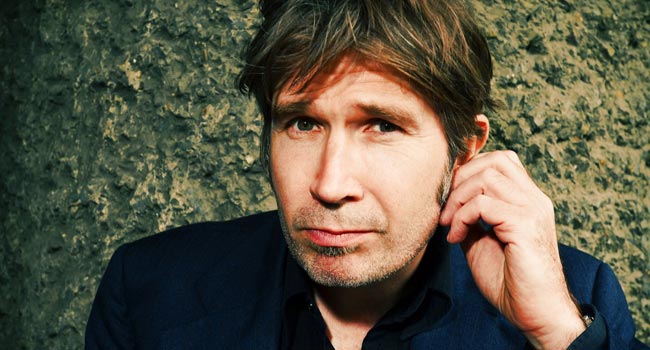
Were they all your songs?
“No, in those days we wrote collectively. We didn’t really think in terms of verses or choruses; we just thought in terms of bits. It took six months to write four songs and as a result I was a bit of a slave driver; we rehearsed 11 ’til 7 o’clock, six days-a-week. It was hard work, but I wanted the band to generate the music collectively. I’ve got hundreds of hours of cassette tapes of things that didn’t make it. It wasn’t dissimilar to being a DJ in the late ‘80s and taking samples of records and stringing them together and then putting a vocal on top.”
Were you the lyricist then?
“Yes, I always wrote the lyric, but I wasn’t that proprietal about it. In the early days the drummer gave me a few weird ideas that I’d try and use, and there was a song called Crows In The Wheatfield which the guitar player Bryan Tollard came up with.”
Do you find lyrics come easily to you, or do you have to work hard at it?
“I couldn’t really answer that question. It’s just something you do… Shit lyrics are easy!”
I mean, do you sit down at an empty page and the words flow out, or do you rewrite and work on lyrics over several weeks or months?
“I do rewrite a bit, but not a huge amount. Generally, if a song is going to work, the lyrics will come out within a few hours. Sometimes a middle eight or a last verse will take a bit longer and I’ll sit on it for a couple of days, or I’ll change a few pronouns, but I wouldn’t say I extensively rewrite things. If a producer comes to me and says something needs a new chorus, I find that virtually impossible to do. Once I’ve written the neat piece of paper that has the finished lyric on it, I find that very hard to change. If that song doesn’t work, I throw the whole thing out.”
Looking at the credits of the three big albums you’re re-releasing, they’re predominantly your songs. Did you feel the pressure to keep delivering as a songwriter or did you relish the challenge?
“I quite like the pressure because it forces you to be prolific. You’ll end up writing things because you’re required to, and you wouldn’t have written them otherwise. You don’t get great songs out of that situation, but you can get some songs that you can turn into to quite good records. My favourite songs of Del Amitri’s tend to be equally split between the co-writes with Iain Harvie and the songs I wrote myself. The songs that we co-wrote, I just couldn’t have even got near written myself. The chord sequences aren’t things I would naturally go to, so I really like those songs.
“The only reason why there are so few co-writes on Change Everything was because we were really up against it. Co-writes were more time consuming because it involved getting the band together and rehearsing and working stuff out, whereas the stuff I wrote on my own I could do in my own time.”

Del Amitri today: Justin (right) with songwriting partner Iain Harvie
Would co-writing happen when you had a half-finished idea?
“No, I would always bring in complete songs where there would be no scope for anybody to get in there. The co-writes would start with something Iain had come up with, so I think of them as his songs. Sometimes he would’ve written an entire chord sequence for verse, chorus and bridge, then I’d write the middle eight.”
Do you enjoy collaborating?
“Yeah I love co-writing with Iain, we dovetail really well together. The stuff he gives me is really easy to write to, because he knows where I’ll go with it. It takes a bit of time, but I find it really pleasurable doing that. I’ve done a bunch of things with a friend of mine called Kevin McDermott who’s a solo artist which I really enjoyed doing.
“I tried a bit of commercial songwriting but I hated it. I thought it was like pulling teeth. When you’re approached to do those sort of things by publishers and managers, it’s generally because the artist isn’t a songwriter. I’ve got no interest in writing with someone who can’t write songs, because eventually you just end up writing the whole song! Also I don’t really want someone else there while I’m writing, so I tend to turn those things down.”
FIND A WAY OF SWITCHING OFF THE CONSCIOUS MIND… WHETHER IT’S GETTING ON A ROWING MACHINE OR TAKING SMACK, WHATEVER WORKS
How do you approach writing a song?
“I’d say all of the impetus to write in any of those ways comes from enforced boredom – being in a haze of nothingness. Sometimes that takes being tired, or being emotional about something. I’ll just wander around the house with nothing to do, turn the radio off, stare out the window, and after a few days of that I generally find myself tinkering. I’m not even aware that I’m doing it. I think the main thing with any sort of creative writing is to find a way of switching off the conscious mind. ‘Self-consciousness is the enemy of art,’ as everybody says. If you can find any way of doing that, I don’t care whether it’s getting on a rowing machine or taking smack, whatever works is fine by me!”
Do you prefer to write at home, or can you write when you’re on the road?
“Nah, I hate writing on the road. Once that guitar goes in its stand at the end of the gig, I don’t want to touch it again. It’s too much like hard work. I need to depressurise when I come off the road, before I can even think about writing a song. I’m sure ideas come to me when I’m gazing out of a van window and I find the physical movement of travelling quite restful. I think that opens your mind up in a lot of ways, so I definitely make mental notes while I’m out there.”
Roll To Me, how did that song come about?
“I was trying to do one of those deceptively light-weight Paul McCartney songs like I Will from the White album. They’re up-tempo and have a pretty melody and big leaps of intervals of notes. So I wrote the melody and chord sequence, which I really liked, but I couldn’t think of a bloody lyric. Then we were doing some rehearsals, and I had a bit of downtime because the band were working on something, so I just sketched in some lyrics while I was upstairs in my bedroom. I threw the lyric down and thought that’ll fuckin do! Then I realised that actually that’s probably the only thing that would work. There are a couple of references to the dark side, but on the whole it’s so sunny. It had an incredible over-use of the word ‘baby’, because I couldn’t get anything else to work.”
Did you think it was going to be a hit?
“No, we knew it was a good record and it was super-melodic, but we didn’t think it was going to be the hit. We thought Hear And Now was going to do be the hit, but it wasn’t a big radio hit in America like Roll To Me was. It just went at radio and everybody started playing it. It was nuts!”
Jumping forward to 2013, your solo album Lower Reaches came out with the single Every Song’s The Same – a great song and a brave lyric that really appeals to the songwriter. What gave you the idea to write a song about songwriting?
“Unusually for me, it started with most of the lyric already written. I don’t think it’s particularly brave, because it’s not about what it’s professing about. On the one hand, it’s addressing the idea that you can’t write songs in a vacuum – you need someone to inspire you – but on the other hand I think it’s a love song. I’m not sure why. It’s obviously not a set of instructions.”
So you’ve gone on tour again as Del Amitri, for the first time in over a decade. Why now?
“We’ve re-released the three albums because Universal heard we were touring and seized the opportunity to put them out at the same time. The key thing for us was getting the musicians that had been in Del Amitri in the ’90s. When they said yes, it was a goer, but if they hadn’t said yes, I’m not sure we would’ve done it.”
Do you still feel compelled to write?
“It’s just something I have to do, or I go completely mad. If I haven’t written a song for six months I start getting very antsy. It doesn’t need to be a good song – I just need to write something. It’s not something I’d ever stop doing.”
Justin Currie’s solo album Lower Reaches is out now. Find out more at www.justincurrie.com. Del Amitri have just re-released three of their classic albums (Waking Hours, Change Everything and Twisted) and embarked on their first live tour in over a decade. For more information visit www.delamitri.org



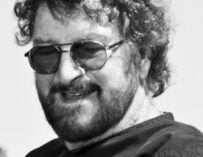
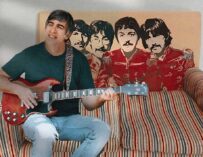
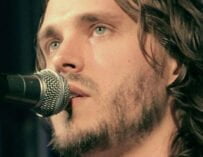
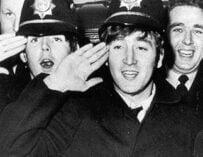


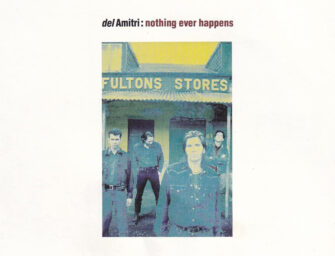

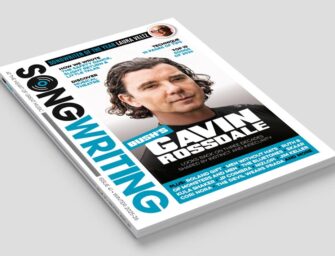
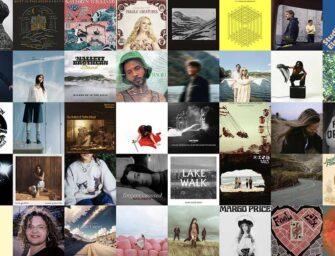




















Related Articles